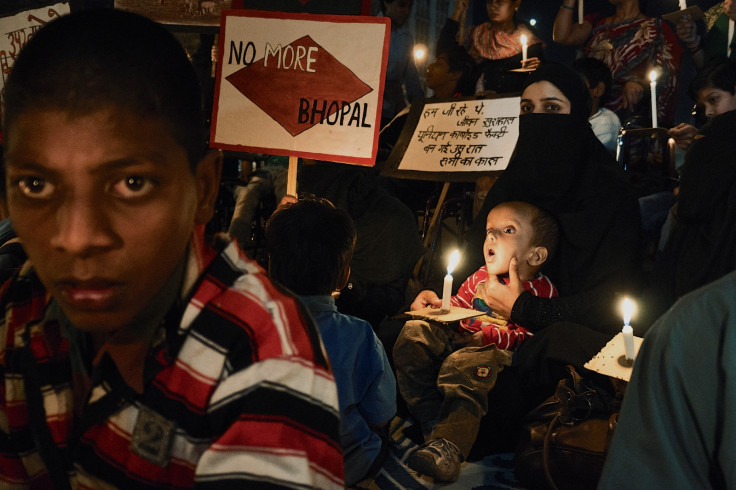Bhopal 30th Anniversary: Dow Chemical Shareholders Attempt to Force Company to Face Charges

Shareholders in Dow Chemical have tabled two motions designed to force the company to accept responsibility for the Bhopal gas disaster, the 30<sup>th anniversary of which is on 3 December.
As previously reported by IBTimes UK, the resolutions claim that Dow's position in the Indian market is in jeopardy, owing to its failure to assume the Indian liabilities of the Union Carbide Corporation (UCC), which it took over in 2001.
On 3 December 1984, a huge cloud of poisonous gas leaked from UCC's insecticide plant in Bhopal, killing thousands of people immediately and thousands more in the years that followed. Hundreds of thousands were injured or acquired related illnesses. The area around the former plant is still contaminated, despite the fact that it is heavily populated.
It has now been confirmed that the two motions reported earlier in November have been tabled. The first was from Calvert Investments, an asset management company with some $13.5bn in investments under its control.
It calls for the separation of the roles of chairman and chief executive, both of which are held by Andrew N. Liveris. The resolution requests that Dow "require the chair of our board of directors to be an independent member of our board".
In a recent interview with this publication, Bennett Freeman, a director in Calvert, said that it was under Liveris' watch that the company had become virtually frozen out of one of the most lucrative chemicals markets in the world.
"It's one thing for Dow Chemical to have problems in Taiwan or Thailand but to be frozen out of India, one of the most dynamic growth markets in the chemical industry, is really unacceptable," he said.
The second resolution was tabled by the Unitarian Universalist Common Endowment Fund (UUCEF) and calls on Dow to accept responsibility for the disaster, to compensate the victims and to pay for a clean-up, claiming that it will continue to lag behind rivals in the Indian market until it does.
It's understood that this motion will be supported by the United Auto Workers Trust (UAW) – a fund with some $50bn in managed assets and which has strong ties with industry in the state of Michigan, where Dow Chemical is headquartered.
The second resolution reads: "The Indian Law Ministry has concluded that 'irrespective of the manner in which UCC has merged or has been acquired... if there is any legal liability it would have to be borne by Dow..."
It continues: "Dow's plans to invest $5bn in India's burgeoning economy by 2015 appear to have been undermined. Visibility during this year of the 30<sup>th anniversary of the disaster may reasonably be expected to further affect growth prospects in South Asia and beyond."
The resolution calls for Dow to prepare a report showing "quantitative metrics of impacts related to Dow's relationship to the legacy of the Bhopal disaster on the company's reputation, investments and social license for the preceding years".
It demands that the board quantify the cost of lost business opportunities in India due to Bhopal, the impact of the disaster and its aftermath on the company's brand value and the PR expenditure undertaken to improve Dow's brand.
Dow has failed to honour multiple court dates in India, where it faces charges of manslaughter and culpable homicide not amounting to murder. The latest of these came in November, when a new summons for March 2015.
Indian-based plaintiffs have been attempting to have Dow bear the cost of ongoing contamination around the site of the UCC plant. After a US judge ruled in favour of UCC in July, EarthRights International, which is bringing the charge, announced that it is to pursue the case in the federal courts.
© Copyright IBTimes 2025. All rights reserved.






















